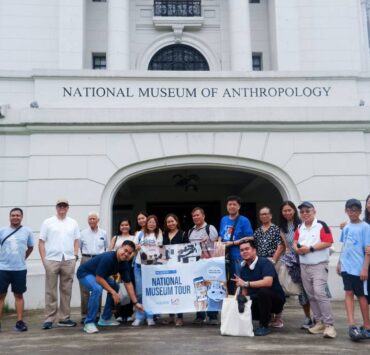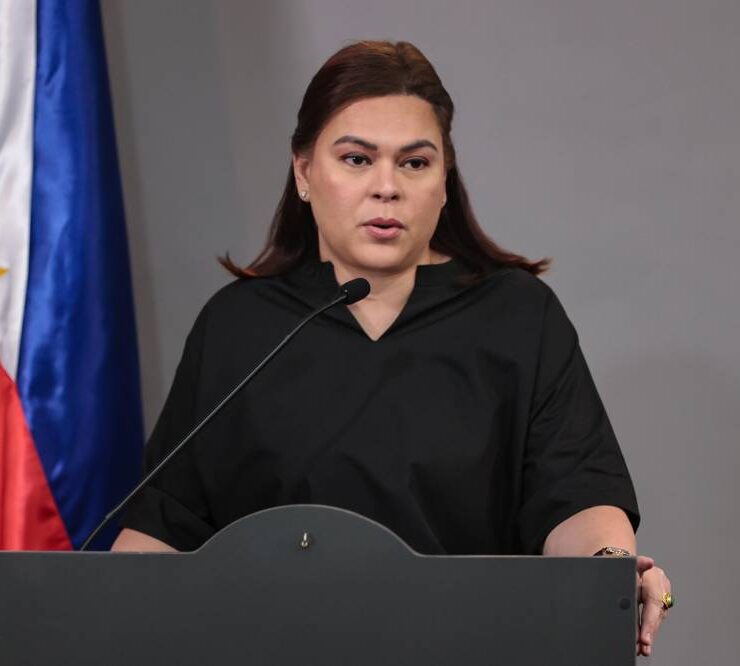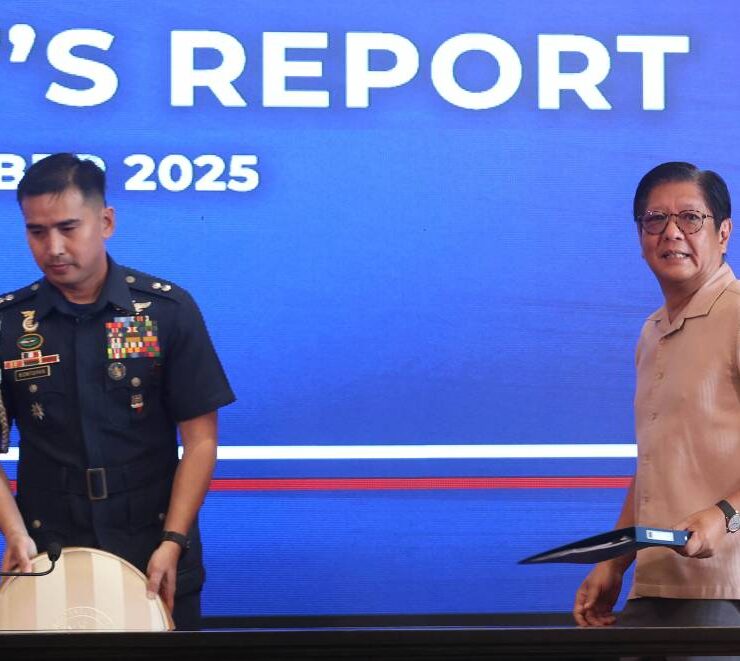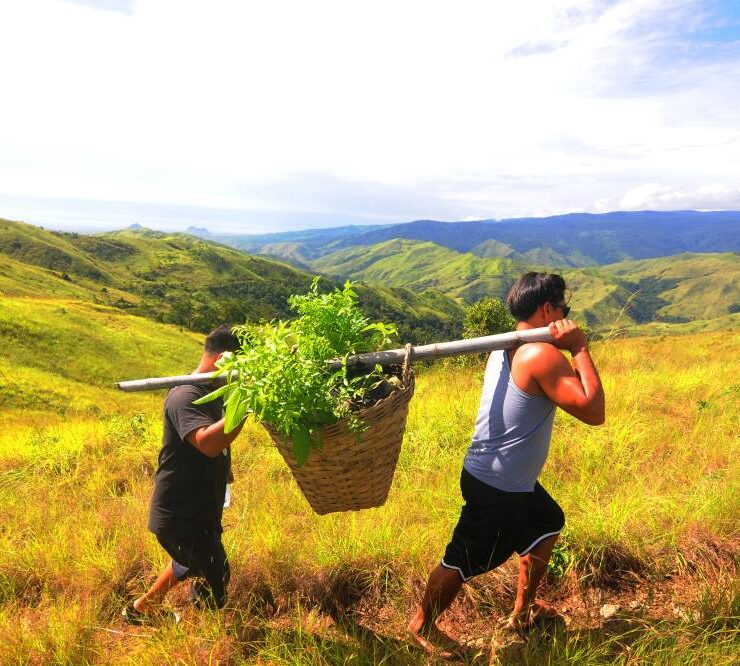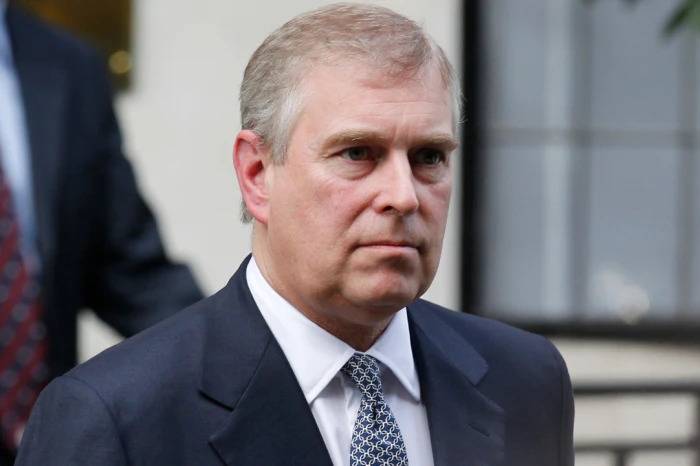Amid sea row, Marcos extends hand to Xi
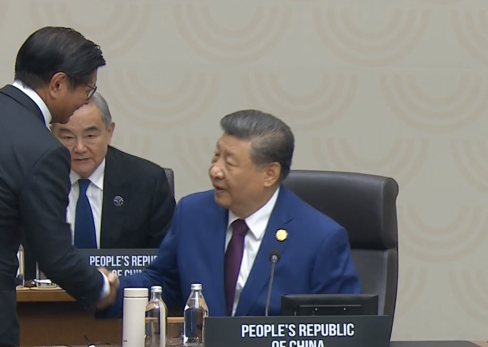
BUSAN, South Korea—It was a now-or-never move.
President Marcos walked up to Chinese President Xi Jinping and shook his hand in an impromptu gesture on Saturday, surprising the Chinese leader during a brief lull at the ceremonial handover of next year’s chairmanship of the Asia-Pacific Economic Cooperation (Apec) from South Korea to China.
China’s Foreign Minister Wang Yi, who was seated behind Xi, was also surprised as Mr. Marcos approached the Chinese leader who had just taken his seat after posing for a photo with President Lee Jae-myung of South Korea, the current Apec chair.
Mr. Marcos said that it was a celebratory handshake.
“I congratulated President Xi Jinping as China assumes the Apec Chairmanship in 2026, and reaffirmed the Philippines’ commitment to partnership and meaningful cooperation in our region,” Marcos said later in a post on his Facebook page.
A video clip of the secondslong handshake by South Korea’s official Yonhap news agency showed Xi settling down on his chair when Mr. Marcos appeared from the left side of the screen extending his right hand to the Chinese president.
Xi, who did not speak and looked surprised, accepted the gesture and stood up as Wang hurried from his seat and appeared to translate a statement from the Philippine leader while the two continued to shake hands. The video showed Xi nodding to acknowledge the remarks of Mr. Marcos, who then returned to his seat.
In an interview with Filipino reporters who traveled with him to the Apec Summit in South Korea, the President explained that what he did was “just common courtesy.”
He said that he wanted to speak with all of the Apec leaders but Xi was “one of the few” that he “made sure that I talked to.”
‘Thank you! Thank you!’
“While everyone was seated, I approached him. I shook his hand and the foreign minister, Wang Yi, who was sitting behind him, came and did some translation for us,” he said.
“I just told him, ‘Congratulations! We look forward to doing a lot of good work with you as Apec chair.’ And he said, ‘Thank you! Thank you!’ And that was it. There was really not very much to it,” the President said.
Mr. Marcos said Xi’s cordon of bodyguards made it difficult to talk to the Chinese president, even in the Apec leaders’ holding room.
“Every time he comes in, he’s surrounded by security. It’s hard to approach him. I didn’t want to push it,” he said.
As time passed, Mr. Marcos told himself it was “embarrassing (that) I haven’t even expressed my greetings.”
But the brief opportunity to greet and speak face-to-face with Xi came during the closed-door handover ceremony, and he grabbed it. “It was quick. It was really quick,” he said.
Mr. Marcos had no bilateral meeting with Xi, who held separate talks with Lee, US President Donald Trump, Prime Minister Sanae Takaichi of Japan, Prime Minister Mark Carney of Canada, Prime Minister Anutin Charnvirakul of Thailand and State President Luong Cuong of Vietnam.
Whether it was common courtesy or congratulatory, the President’s move was made against the backdrop of a long-standing maritime dispute between the Philippines and China, which both countries said they wanted to settle peacefully.
But it was the President, who often complains about Chinese aggressive actions in the West Philippine Sea, who initiated the universal gesture of peace and friendship, which surprised the Chinese leader unaccustomed to unchoreographed actions.
As China takes over the Apec chairmanship, so too will the Philippines take the helm of the Association of Southeast Asian Nations (Asean), a major trading bloc.
Code of Conduct
During a press briefing at the Asean summit in Kuala Lumpur, Malaysia, last week, Mr. Marcos said he would invite Xi to come to the Philippines to finally conclude the yearslong negotiations for the Code of Conduct in the South China Sea.
The Chinese president last visited the Philippines in November 2018.
Moreover, Mr. Marcos said he would continue searching for ways to redefine the Philippines’ ties with China—aside from their maritime dispute.
“I really believe that the way forward is to change,” he said. “There is a huge possibility for trade, for exchanges, for all kinds of discussions and engagements between China and [the Philippines], and that do not include these territorial disputes.”
The West Philippine Sea is part of the Philippines’ 370-kilometer exclusive economic zone. The resources in this maritime domain, however, are under threat from China, which continues to ignore the 2016 international arbitral ruling that recognized Philippine sovereign rights over these waters.
The Apec Leaders’ Meeting held at the Hwabaek International Convention Center in Gyeongju, South Korea, concluded on Saturday.
The Apec members adopted the Gyeongju Declaration that acknowledged “the importance of a trade and investment environment that promotes resilience and benefits for all.”
The Declaration, however, omitted language reaffirming a shared commitment to uphold the multilateral trading system, highlighting the growing divide in trade views among the world’s major economies.
The extent to which leaders could reach a consensus on free trade had been a major focus of this year’s Apec, given the return of the Trump administration and its “America First” policy, along with the US trade war with China.
WTO dropped
For the past few years, most Apec economies had endorsed the World Trade Organization (WTO)-centered free trade order in their joint declarations, but the reference to the WTO system was dropped this year.
Aside from trade, the Declaration focused on technological advancements driven by artificial intelligence and demographic changes, which were two initiatives pursued by South Korea as this year’s Apec host.
Established in 1989, the regional economic forum aims to harness the growing interdependence of the Asia-Pacific region to promote greater prosperity for its people.
The Apec member economies include the United States, China, Japan, Russia, Canada, and others in Southeast Asia and the Pacific, Peru, and Chile.














